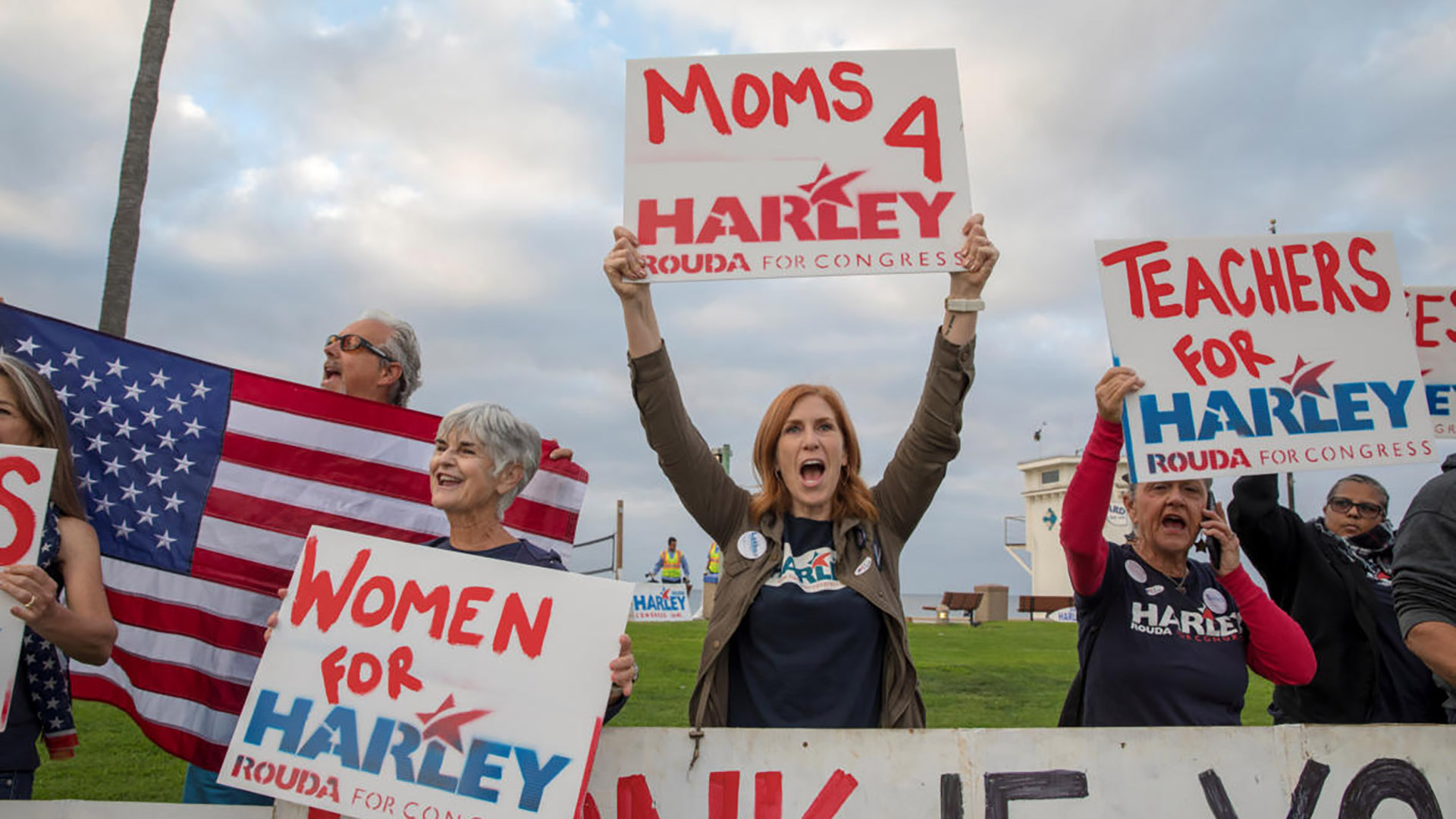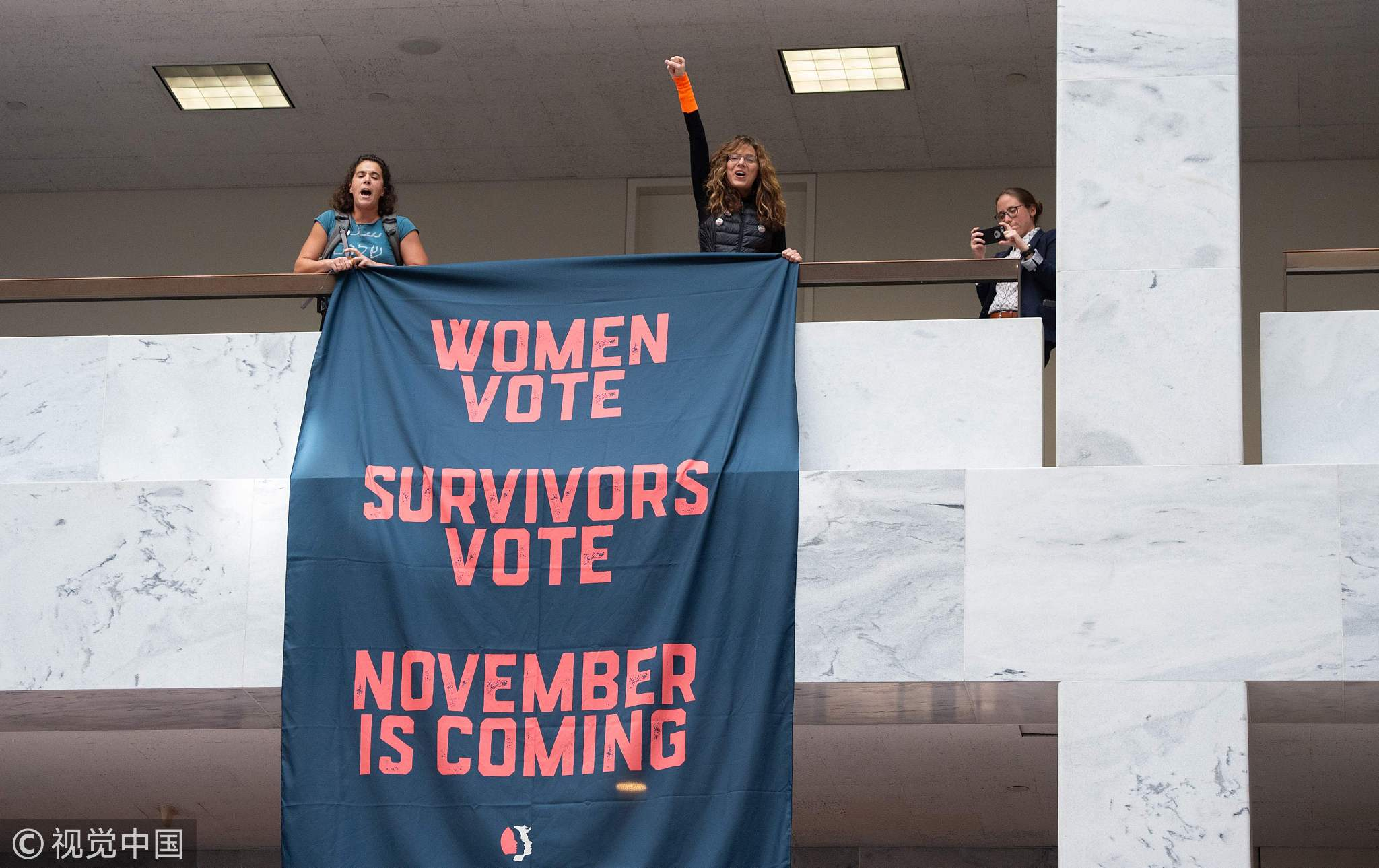
Politics
18:13, 07-Nov-2018
More women running in US midterm elections amid #MeToo movement
Updated
18:02, 10-Nov-2018
By Karina Huber
02:44

Female voters are considered key, and many are energized by the #MeToo movement. A record number of women are running for office in the 2018 US midterm elections.
The day after Donald Trump's inauguration in 2016, hundreds of thousands of American women protested in the nation's capital. A year-and-a-half later, a record number of American women (almost 600 of them) are running for seats in the US Congress or for governors.
A record number of those women, most being Democrats, have won their primaries and advanced to the midterm elections on November 6.

Women demonstrators protesting against Judge Brett Kavanaugh's nomination at the Hart Senate Office Building in Washington, DC, September 28, 2018. /VCG Photo
Women demonstrators protesting against Judge Brett Kavanaugh's nomination at the Hart Senate Office Building in Washington, DC, September 28, 2018. /VCG Photo
American women haven't traditionally voted for a candidate just because she's female, but that could be changing. In several jurisdictions, women were victorious despite being relatively unknown.
Twenty-eight-year-old Alexandria Ocasio-Cortez from New York scored the biggest upset. She beat her male counterpart who had served for ten terms.
Debbie Walsh, director of the Center for American Women in Politics at the Rutgers University, said that strong turnout in support of women (particularly Democratic women) is in direct response to the election of President Donald Trump.
“There has been an activation, particularly among Democrats on the left, saying what happened?” said Walsh. “We're worried about a whole set of policy issues related to the election of Donald Trump. We can't afford to not be involved and engaged.”
Despite the political activism among female Democrats, Walsh said women still make up less than a quarter of the candidates running for office this cycle. She doesn't expect a tsunami of women in Congress this year.
When it comes to elections, most Americans are loyal to their party first. Republican women are not likely to vote for female Democrats.
Experts said if there is to be a "blue wave" dominated by women in Congress this year, more Democrats will have to come out and vote.

SITEMAP
Copyright © 2018 CGTN. Beijing ICP prepared NO.16065310-3
Copyright © 2018 CGTN. Beijing ICP prepared NO.16065310-3